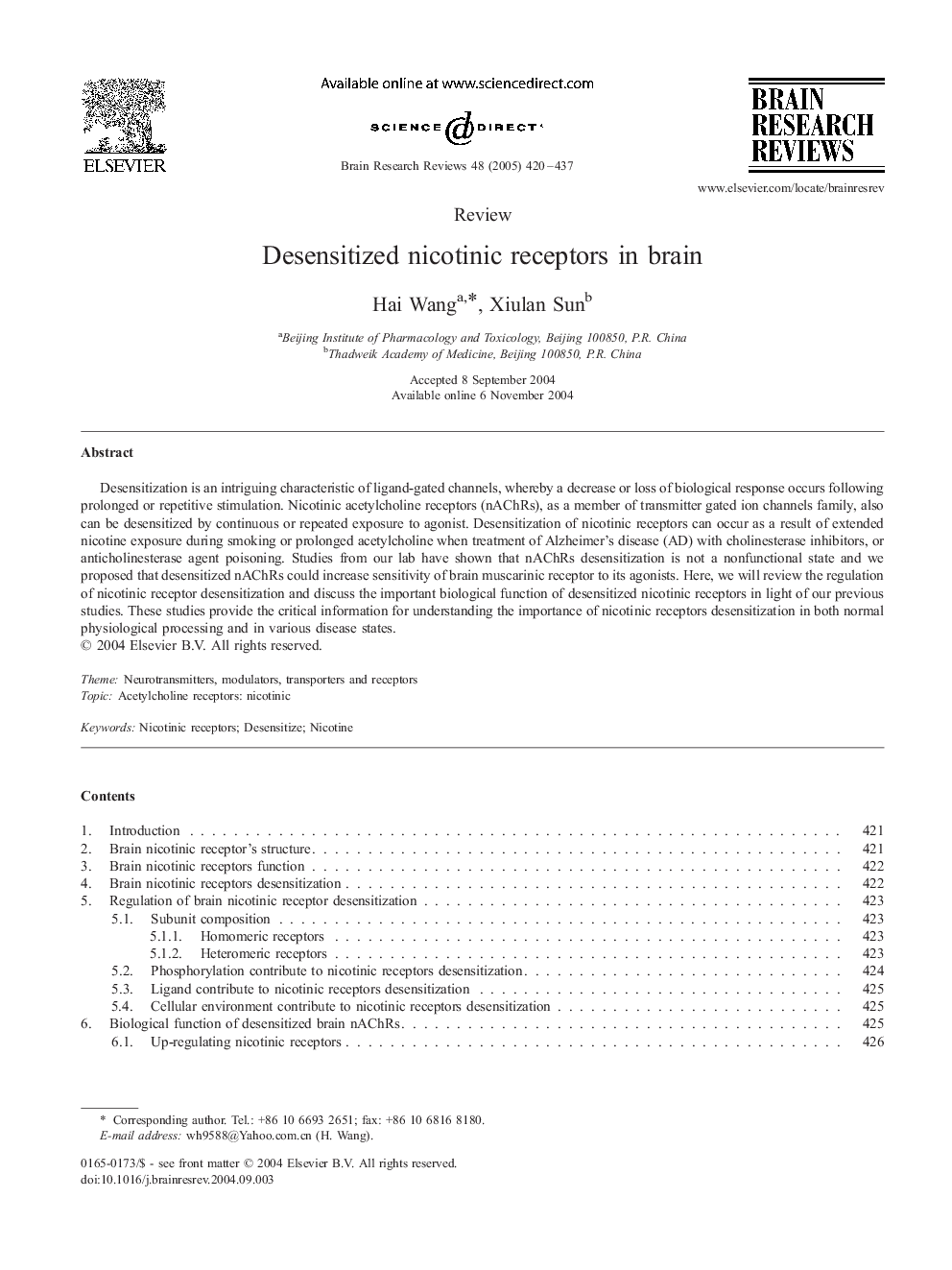| Article ID | Journal | Published Year | Pages | File Type |
|---|---|---|---|---|
| 9423119 | Brain Research Reviews | 2005 | 18 Pages |
Abstract
Desensitization is an intriguing characteristic of ligand-gated channels, whereby a decrease or loss of biological response occurs following prolonged or repetitive stimulation. Nicotinic acetylcholine receptors (nAChRs), as a member of transmitter gated ion channels family, also can be desensitized by continuous or repeated exposure to agonist. Desensitization of nicotinic receptors can occur as a result of extended nicotine exposure during smoking or prolonged acetylcholine when treatment of Alzheimer's disease (AD) with cholinesterase inhibitors, or anticholinesterase agent poisoning. Studies from our lab have shown that nAChRs desensitization is not a nonfunctional state and we proposed that desensitized nAChRs could increase sensitivity of brain muscarinic receptor to its agonists. Here, we will review the regulation of nicotinic receptor desensitization and discuss the important biological function of desensitized nicotinic receptors in light of our previous studies. These studies provide the critical information for understanding the importance of nicotinic receptors desensitization in both normal physiological processing and in various disease states.
Keywords
Related Topics
Life Sciences
Neuroscience
Neuroscience (General)
Authors
Hai Wang, Xiulan Sun,
